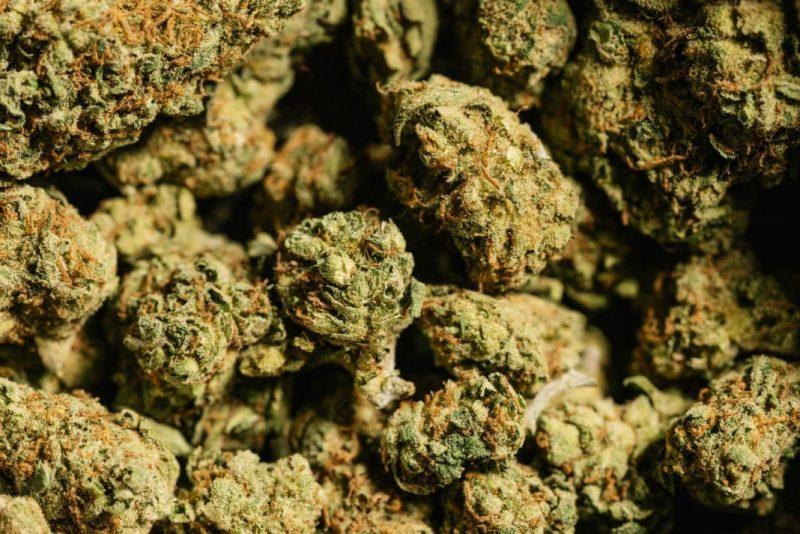By Anna Chibamu
Africa-Press – Zimbabwe. MARIJUANA popularly known as mbanje or cannabis is the most commonly abused drug in Zimbabwe, a study has revealed.
The study, carried out by government through the Youth, Empowerment, Development and Vocational Training ministry in collaboration with Silveira House Jesuit Social Justice and Development Centre and the University of Zimbabwe-Department of Applied Psychology in six provinces was presented during a strategic planning workshop this week and showed that the commonly abused drug was Marijuana or Mbanje at a use rate of 31.3%.
Drug and substance is the ‘harmful or hazardous use of psychoactive substances, including alcohol and illicit drugs’.
Crystal Math also known as Mutoriro/Dombo/Guka is consumed at 24.4%; illicit alcohol such as Musombodiya, Njengu/ Tumbwa, 21.7%; Bronclear/Bronco, 11.8% and inhalants such as glue, thinners and petrol, 2.4%; prescription drugs (sleeping tablets, sedatives, diazepam, Maragadu) taken at 2.3%, Cocaine and Heroin at 1.6% and 0.2% respectively.
Silveira House Research Officer David Bote said the study areas included Harare with an 11.7% characteristic; Bulawayo,9.0%, Masvingo, 21.6%; Matabeleland South, Mashonaland West, 28.4% and Midlands province, 24.3%.
Bote said the study focused on those above 18.
“83,7% of people interviewed during the research knew of someone accessing or using drugs and substances while 16,3% of the interviewed population said they were not aware of anyone being involved in such issues.
“The commonly used drugs are Mbanje or Marijuana, Crystal math or Mutoriro, illicit brews such as Tumbwa, inhalants such as glue and petrol. Also, Cocaine and Heroin were being abused while the most easily accessible drugs and substances were Marijuana, illicit alcohol, Crystal Math and Bronco,” Bote told stakeholders during the workshop.
The report also highlighted that males are the most abusers of alcohol and substances at 72.1% and females at 27.9%
The users were mainly concentrated in urban areas at 73.9% whilst rural areas constituted 26.1%.
According to Bote, the secondary and tertiary institution students abused drugs and substances at 54.5%.
Sources of drugs and substances included agents, bars, shops and shebeens, pharmacies and clinics as well as friends.
He said the driving factors that needed urgent redress were mostly economic. Other factors included peer pressure, the pursuit of fun and happiness, lack of knowledge, lack of good parenting, and shortages of recreational facilities in communities and social media were some of the main drivers of drug and substance use.
Most of those who contributed to the survey (69%) accused the government of failure to take responsibility.
Bote highlighted that the effects of drug and substance abuse were enormous causing a 27% crime rate, deterioration of health at 25%; aggression at 11.9% and causing death at 7%.
The study also revealed that those wishing to leave drugs and substances faced obstacles such as painful withdrawal symptoms, addiction, peer pressure, absence of an alternative.
The church was contributing more than any other sector in trying to curb the scourge at 84%.
“Government must invest resources in organisations helping to curb the scourge because health institutions are not well resourced to deal with such issues,” reads part of the report.
A nurse at Parirenyatwa Hospital this year told a Parliamentary Committee on Health that the Annex Department for Mental Health Care was failing to cope with the number of patients coming to seek treatment at the health institution while there were no medicines and other accessories to deal with those affected.
The report urged the government to adopt a Youth Employment Policy so that young people do not remain idle once they complete secondary or tertiary education.
Police were also urged to invest in public trust while local authorities were asked to establish youth interaction facilities country-wide.
Bote said Non-Governmental Organisations (NGOs) should move beyond awareness campaigns and do more to save the lives of young people whose future is at stake due to the abuse of drugs and substances.
Meanwhile, the Youth ministry working with different stakeholders is in the process of drafting a strategic ‘policy’ document that will be approved by the government to help deal with the increasing abuse of drugs and substances in the country.
A Strategic Planning director in the Ministry, Blazio Manobo said the document will help the government in the planning towards curbing drug and substance abuse.
Under the Dangerous Drugs Act, Cannabis or Mbanje is illegal to possess or use in Zimbabwe.
One can only use it or possess it if approved by the government by obtaining a licence which costs US$46 000 with an application fee of US$11,250.
The government has licensed a few individual farmers for huge production of the crop for export to get the much-needed foreign currency.
Police have reported that 25% of arrests of Drug and Substance abusers use Mbanje.
New Zimabbwe
For More News And Analysis About Zimbabwe Follow Africa-Press






